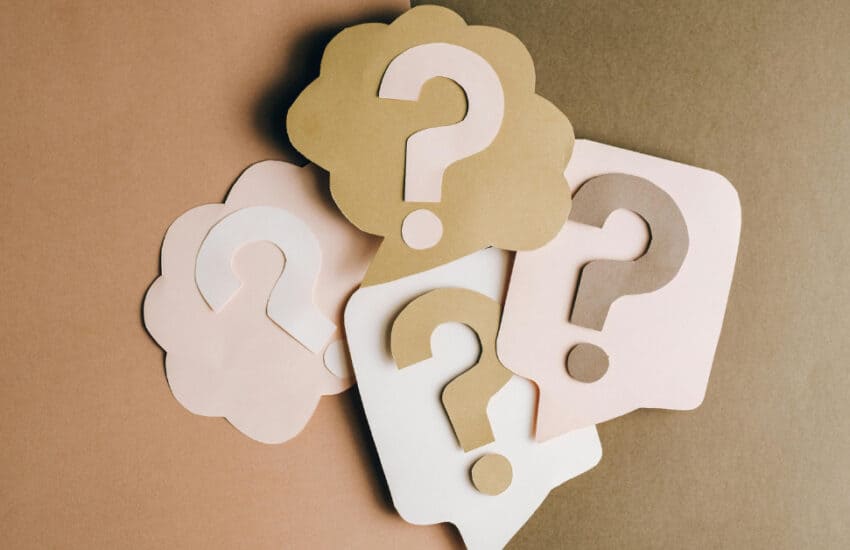You have top questions about recycling. We have answers.
At the Solid Waste District, our team affectionately refers to April as ‘Earth Month.’ Earth Month is a busy time for our staff as we attend booths at festivals or events, hold speaking engagements, give seminars, and celebrate our environment with Earth Day on April 22.
During Earth Month, and throughout the year, there are recycling questions that we hear regularly from residents. Engaging with the public is one of the most important things that we do because it allows us to clear up confusion about recycling, settle family debates about certain items, and encourage better habits for waste reduction and recycling.
Here are answers to the top questions our staff answered in April, plus best practices and tips for recycling right.
Don’t Look at the Number.
All plastics are not created equal, and not all plastic is recyclable. Despite a long history of being told to look at the numbers, the numbered symbols on single-use plastics do not mean ‘you can recycle me.’ Resin identification codes, the number in the Mobius, is a numerical classification (#1-7) that only informs what type of plastic it is and not how it was heated, treated, or formed. Instead, look at the shape. Recycle only plastic bottles, jugs, and tubs.
In Some Communities, Clamshells are a ‘No.’
Some plastics are very fragile and break apart into tiny pieces or are flattened and sorted improperly at the materials recovery facility (MRF). Additionally, plastic products like clamshells, berry or produce containers, takeout containers, and Styrofoam are created through different processes making them chemically different and melt at different temperatures. This all affects recyclability. Again, look at the shape. Recycle only plastic bottles, jugs, and tubs.
Due to changes in the sorting process, and advancements in AI, Rumpke communities can recycle clear plastic clamshells beginning in November 2024.
No Plastic Bags.
Keep recyclables loose. Don’t bag your recycling if using a curbside cart or bin. Bags are tanglers at the MRF and can damage machinery and slow the recycling process. Collect the recycling in your home, then dump it unbagged into the cart or bin you take to the curb.
Empty, Clean, and Dry.
Rinse residue from cans, bottles, jars, or any recyclable container that may contain food particles. Turn the container upside down and let it drain out. Pizza boxes should have no food or excess grease. We go in-depth in our blog post “How Clean Is Clean?”
Caps On.
Replacing the cap, if it’s available, on plastic bottles helps keep all items in your recycling cart or bin clean and dry. Also, plastic caps are recoverable and recyclable.
Empty and Flatten Boxes.
Remove all contents from boxes, including plastic film, strapping, Styrofoam, and excess packing material, and discard them appropriately. Flatten boxes before recycling. This applies to boxboard (cereal, cracker, or tissue boxes) and corrugated cardboard (shipping, moving, or banker boxes). Flattened boxes save space in your recycling cart and the collection truck. It also allows boxes to be sorted properly at the MRF.
Keep Paper and Boxes Dry.
When it’s raining or snowing, recycling can get ruined. Especially paper and boxes. When paper gets wet, it lowers the quality of the paper and its usefulness for recycling. Each time paper gets wet and dries out, the fibers become shorter, making the paper brittle, crumbly, and less valuable to recyclers. Wet paper also tends to get moldy quickly, which lowers its value as a commodity, and is difficult for the machinery to sort at the MRF.
Know What to Throw.
There are four recycling processors, MRFs, that serve Cuyahoga County and each MRF has a list of acceptable items indicating the materials they can accept, sort, and process for recycling. Your community has a contract with one of the four processors which determines what you can put in your curbside cart or bin. Stay informed and up to date about the items that can be included in your community’s recycling program.
Don’t Wishcycle.
Placed an item in the recycling bin with hopes of being recycled? You’re wishcycling, especially when an item cannot or is unlikely to be recycled. Wishcycling is contamination and causes sortation problems at the MRF. Recycling only the correct items is paramount: aluminum cups, cans, cardboard, glass bottles and jars, paper and boxes along with plastic bottles and jugs.
Do you have your top questions about recycling right? Need to solve a disagreement? Ask our staff. We are happy to help.
POSTED ON:
